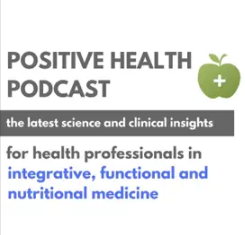
Is Coffee good for your Digestion?
February 25, 2025
Measuring cortisol levels and what it means – the DUTCH test
March 10, 2025SIBO – a major cause of IBS
 Irritable bowel syndrome (IBS) may affect 1 in 5 people in Ireland. Small Intestinal Bacterial Overgrowth (SIBO) is the most common cause although is rarely tested for. IBS is currently used as an umbrella term for a wide number of digestive symptoms including chronic or recurrent constipation or diarrhoea, bloating and spasmodic cramping amongst many others.
Irritable bowel syndrome (IBS) may affect 1 in 5 people in Ireland. Small Intestinal Bacterial Overgrowth (SIBO) is the most common cause although is rarely tested for. IBS is currently used as an umbrella term for a wide number of digestive symptoms including chronic or recurrent constipation or diarrhoea, bloating and spasmodic cramping amongst many others.
IBS in itself is considered a ‘diagnosis of exclusion’, which means that if no good reason can be found for your digestive discomfort, then you are handed the label of IBS which gives it a name, but no solution in many cases. However, there are many digestive tests that are not routinely carried. These tests could help shed light on bacterial imbalances or gut dysfunction that could be contributing to your symptoms. Once identified, it can help significantly to restore these imbalances and promote gut healing.
Wrong place, wrong time
SIBO occurs when bacteria normally present in the colon, the lower part of the digestive tract, are found in the small intestine instead. Hypotheses for this include slow transit time, so that when the stool is moving very slowly through the gut, it allows the bacteria to move back up the digestive tract to a part where they are not normally found. This may be due to constipation, or a more physical reason where the gut muscles do not function well moving the stool along. Others suggest that it may be a dysfunction of the ileo-caecal valve at the junction between the small intestine and the large. This is the gate being left open as it were.
Regardless, bacteria in the wrong place at the wrong time are then exposed to food that is not as well digested as they would normally expect to see later on in the digestive process. The bacteria can feed off this food and often produce large amounts of gas. This gas will contribute to excessive bloating, discomfort or cramps.
IBS symptoms due to overproduction of gas
Typically in SIBO, people react to foods like garlic, onions and the brassica family like cabbage. This is due to the fact these particular foods are eaten up by the bacteria and produce significant amounts of gas. However, there is a long list of foods high in fermentable carbohydrates which feed these bacteria. This is the basis of the low FODMAP diet (Fermentable Oligo- and Di-saccharides, maltol and polyols). By following a low FODMAP you effectively ‘starve’ the bacteria out. Despite this being initially heralded as a fantastic solution to IBS, the trouble is that you starve all your good bacteria also, not to mention the fact that it is very restrictive in general. The recommendation now is that this diet is not to be followed long term.
Starving out the bacteria with a restricted diet works best if it is done in conjunction with killing off the bacteria at the same time to reduce the risk of re-occurrence. It is worth noting that it is not easy to eradicate this issue, particularly if the underlying cause is still present, and re-occurrence is common.
Testing for SIBO
Testing for SIBO involves a simple non-invasive breath test. A strict preparatory diet starves the bacteria for a period of 24-48 hours before the test. Then a sugar solution is taken and the bacteria, if present, will feed rapidly on this. Gas produced will travel to your lungs and be exhaled in your breath. Capturing breath samples over a defined period of time allows us to determine the presence of SIBO.
Your nutritionist at Positive Nutrition can advise whether this test is recommended for you. This is based on your particular symptoms, history and health concerns. Your test results will be analysed and an appropriate course of action advised. SIBO test results should be reported to your GP and you should only use approved testing facilities.
A sample case study…
Male, 32, presented with diagnosis of methane-producing SIBO, chronic diarrhoea, fatigue and digestive discomfort. Further testing also revealed a yeast overgrowth and colonic bacterial imbalances. Previous treatment with antibiotics had resulted in unwanted side effects. The patient was supported with dietary changes, excluding high FODMAP foods for a time, excluding sugar and reducing dairy and gluten which he felt were triggers for him. Supplements were recommended to support bacterial balance in the gut. Symptoms were significantly improved within 3 months and the patient now feels that his digestive system is managed, rather than taking control over his life.


